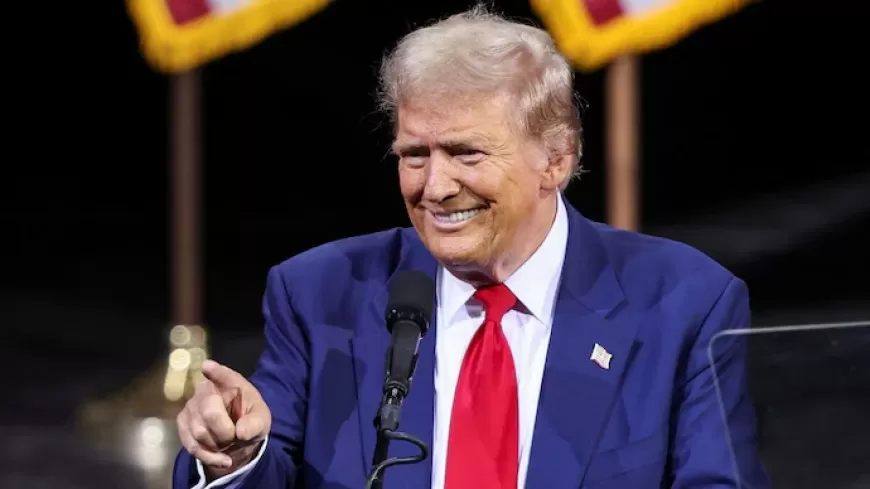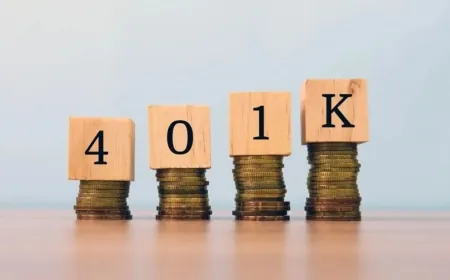Donald Trump Wins 2024 Election: What’s Next for Inflation, Trade, and Taxes?
With Donald Trump’s 2024 win, big changes are on the way for the U.S. economy. See his plans on inflation, trade, taxes, and how they could impact daily life.

Donald Trump has officially been declared the 47th President of the United States after defeating Vice President Kamala Harris. The Associated Press confirmed Trump's victory after he won Wisconsin, putting him over the top and ensuring his return to the White House. This victory makes him the only U.S. president to hold both the 45th and 47th titles.
Speaking to supporters early Wednesday morning, Trump reflected on his political journey, calling it "the greatest political movement of all time." He emphasized the importance of his victory, noting his strong support base, especially among voters concerned about inflation. "America has given us an unprecedented and powerful mandate," he stated, acknowledging his win in both the electoral college and the popular vote.
Trump’s Economic Focus: Tackling Inflation and Trade Policies
One of the central issues of Trump’s campaign was inflation, which has remained a significant concern for American voters. Despite a decrease in inflation from its peak in 2022, rising costs have remained a prominent issue throughout the campaign. Trump promised to address inflation quickly, a promise that resonated with voters, especially in key battleground states.
To combat inflation, Trump has proposed a series of tariffs and trade restrictions. His plan includes imposing new tariffs on China and Mexico, as well as increasing duties on other global trade partners. While his supporters see this as a way to protect U.S. industries, economists have expressed concerns. A recent report from Capital Economics suggested that Trump's tariffs could slow GDP growth by 1% and increase inflation by the same margin.
Trump’s hard stance on trade was apparent throughout his campaign, especially in key swing states like North Carolina, where he outlined plans for tariffs on Mexico. His economic message clearly struck a chord with voters who felt that tough trade policies were needed to secure American jobs and reduce dependence on foreign imports.
Taxes and Budget: Trump’s Plans for Economic Growth
Another key focus of Trump’s agenda will be tax policy. The president-elect has vowed to extend the 2017 tax cuts he passed during his first term, ensuring that individuals at all income levels continue to benefit. In addition to extending these cuts, Trump has proposed a range of tax reforms, including eliminating taxes on tips and overtime pay and lowering corporate taxes.
However, the cost of these tax cuts could be substantial. The Center for a Responsible Federal Budget estimates that Trump’s proposed tax cuts could add up to $9 trillion in lost revenue over the next decade. While Trump has not outlined specific plans to offset these costs, his proposals are expected to spark intense debate in Congress. With Republicans holding control of the Senate, but the balance of power in the House still unclear, negotiations on tax policy will be closely watched.
The Federal Reserve and Energy: Potential Changes Ahead
Beyond taxes and inflation, Trump will also play a key role in shaping U.S. economic policy through appointments, particularly in regard to the Federal Reserve. Trump has hinted that he would not support the reappointment of current Federal Reserve Chairman Jerome Powell, signaling potential changes in monetary policy. These changes could have a significant impact on interest rates and inflation, shaping the future of the U.S. economy.
Additionally, Trump’s stance on energy policy could lead to significant shifts. He has expressed interest in rolling back subsidies for green energy projects, instead prioritizing traditional energy sources like coal, oil, and natural gas. If implemented, these policies could affect the country’s efforts to transition to renewable energy.
As Donald Trump prepares to take office for his second term, Americans are bracing for significant changes in economic policies. Whether his plans to tackle inflation, revise trade agreements, and adjust tax laws will lead to long-term economic growth remains to be seen, but one thing is clear: his presidency will have a major impact on the U.S. economy.
































































